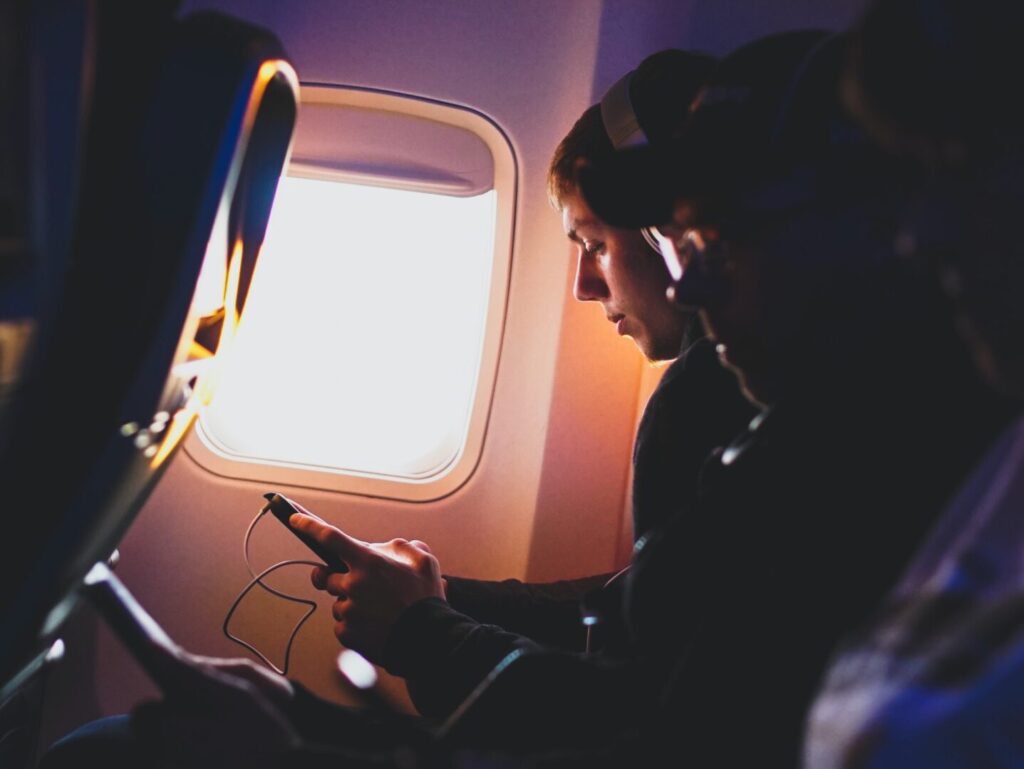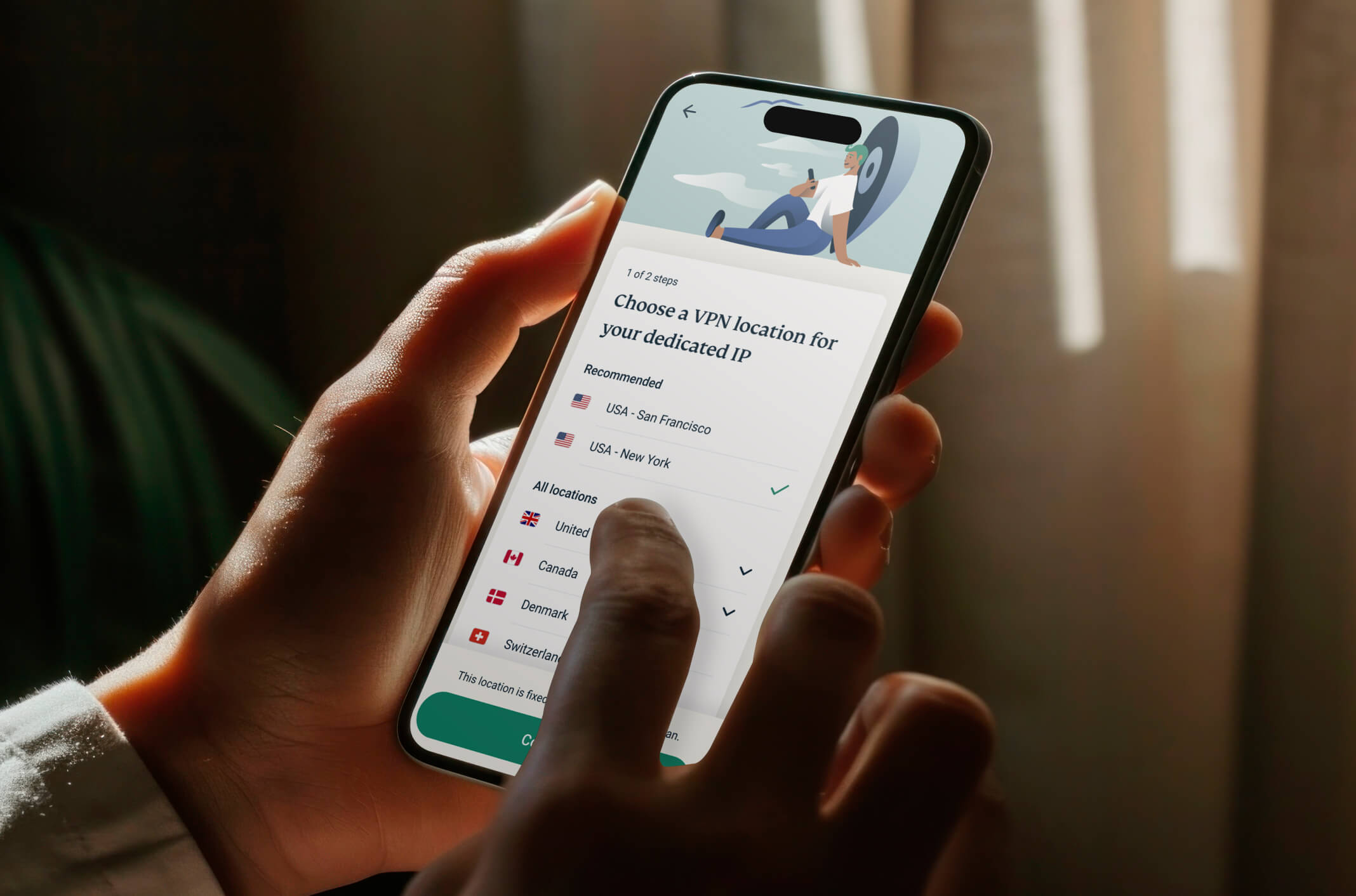Business travel is back in business. At least, that’s according data provided by the WTTC’s 2024 Economic Impact Trends Report, which predicted that business travel spending in the US was set to hit $472BN last year—13.4 percent above the country’s record in pre-Covid 2019.
For all the hype surrounding remote meetings or conferences, there’s still no real replacement for face-to-face interactions. Being in the room where it happens provides the perfect opportunity to forge new connections and strengthen existing business relationships.
But renewed interest in business travel is accompanied by a few bumps in the road. On-the-go professionals rely on access to fast, secure network connections. While WiFi services have become a staple on trains, planes, and local transport hubs, plenty of problems persist.

Photo: Courtesy of Camilo Jimenez / Unsplash
High-profile cyberattacks on public network systems have become increasingly common. Statista reports that cafes and restaurants are the leading places where US adults have experienced compromises over public WiFi (25 percent), with airports ranking a close second (23 percent).
So how can professional travelers and the businesses they work for mitigate the risks while on the road?
Hitting a Digital Dead-End
One of the main risks to travelers is that in order to stay connected and working while on the move, they will often rely on public, often unsecured, WiFi—and they will use these networks without any additional digital security protection in place.
Despite significant advancements in the world of cyber security, most public WiFi networks continue to lack proper security safeguards. This often means that they allow access without requiring a password and also lack sufficient encryption strength to keep hackers at bay.

Photo: Courtesy of ExpressVPN
However, this doesn’t mask one of the biggest challenges facing business travelers. Cybercriminals have evolved beyond simple password cracking—they now have access to a fully-stocked arsenal of tools and techniques, all aimed at breaking down virtual walls and exposing personal information.
A recent travel survey conducted by ExpressVPN, a leading virtual private network (VPN) connectivity provider, found that 42 percent of cybercrime victims experienced financial fraud while on holiday and 33 percent had social media accounts hacked while traveling.
In some instances, hackers even turn to ‘packet sniffing‘, allowing them to analyze large volumes of data in the hopes of accessing sensitive information. Others may opt for man-in-the-middle (MitM) attacks, which enable the eavesdropping and infiltration of conversations between connected devices and their corresponding routers. Amongst other things, this could grant access to users’ financial login details.

Photo: Courtesy of Daniel McCullough / Unsplash
The cyber security landscape has only become more complex in the wake of COVID. Hybrid working means employees need to take their laptops home with them, leading to many using business devices in the same way as they would a personal device. This introduces fresh challenges, including employees downloading unknown apps and software without IT’s knowledge.
But security and privacy issues aren’t a one-way street, and the buck doesn’t stop solely with employees. Regardless of who’s at fault, any mistake can cause complications for organizations further down the line. Data exploitation, for example, could lead to identity theft and financial loss – impacting both the employee and the business.
Putting Privacy on the Map
On paper, the most obvious way to combat cybercrime is simple: businesses need to invest in bridging the knowledge gap. Training employees on the dangers posed by hackers—whether that’s malware infections or remote device control—is the first step to ensuring they’re more cautious while on the move.
But, it would be naive to think that placing the emphasis solely on education will solve all privacy problems. Even employees who fully understand the ramifications of unsecured network connections can’t be 100 percent assured that their data will remain under lock and key.

Photo: Courtesy of ExpressVPN
This isn’t just about upskilling; it’s about ‘up-tooling‘. Employees need modern, robust systems so that they can work with confidence—no matter their location, or which device they log in from.
One way to give this peace of mind is to implement tools that provide secure encryption and hide the user’s IP address when connecting to public WiFi systems. Aside from an immediate security upgrade, this also provides greater privacy while working abroad, protecting against third-party monitoring.
Getting Your Cyber-Bearings
So, what’s the best way to throw hackers off course? Although it may seem that the responsibility for maintaining digital privacy rests squarely on the shoulders of the individual, businesses can’t continue to ignore their role in safeguarding data. And while training is an excellent starting point, this isn’t where the journey ends.

Photo: Courtesy of ExpressVPN
Investing in advanced digital privacy and security tools such as VPNs (virtual private networks) and extra verification steps will not only ensure that sensitive information stays confidential. It will also empower employees to work at maximum capacity – no matter where they set up shop.





